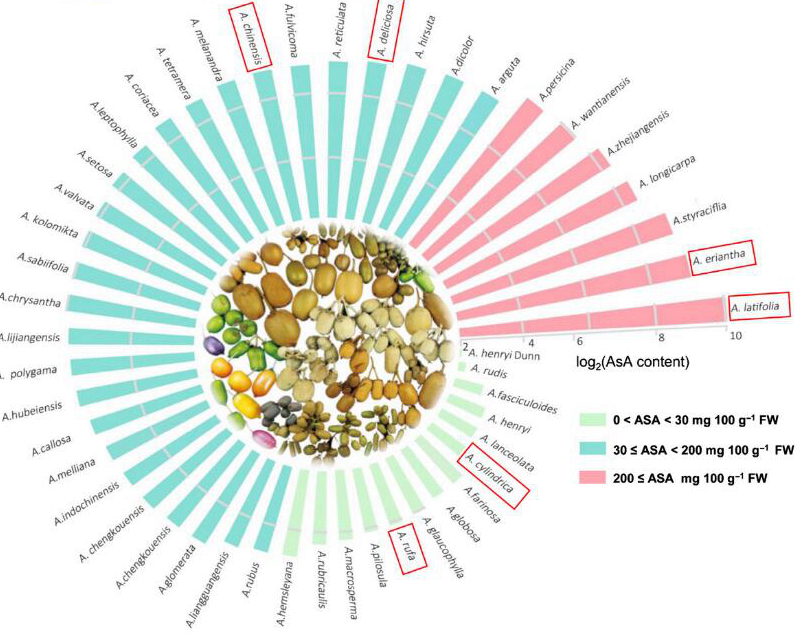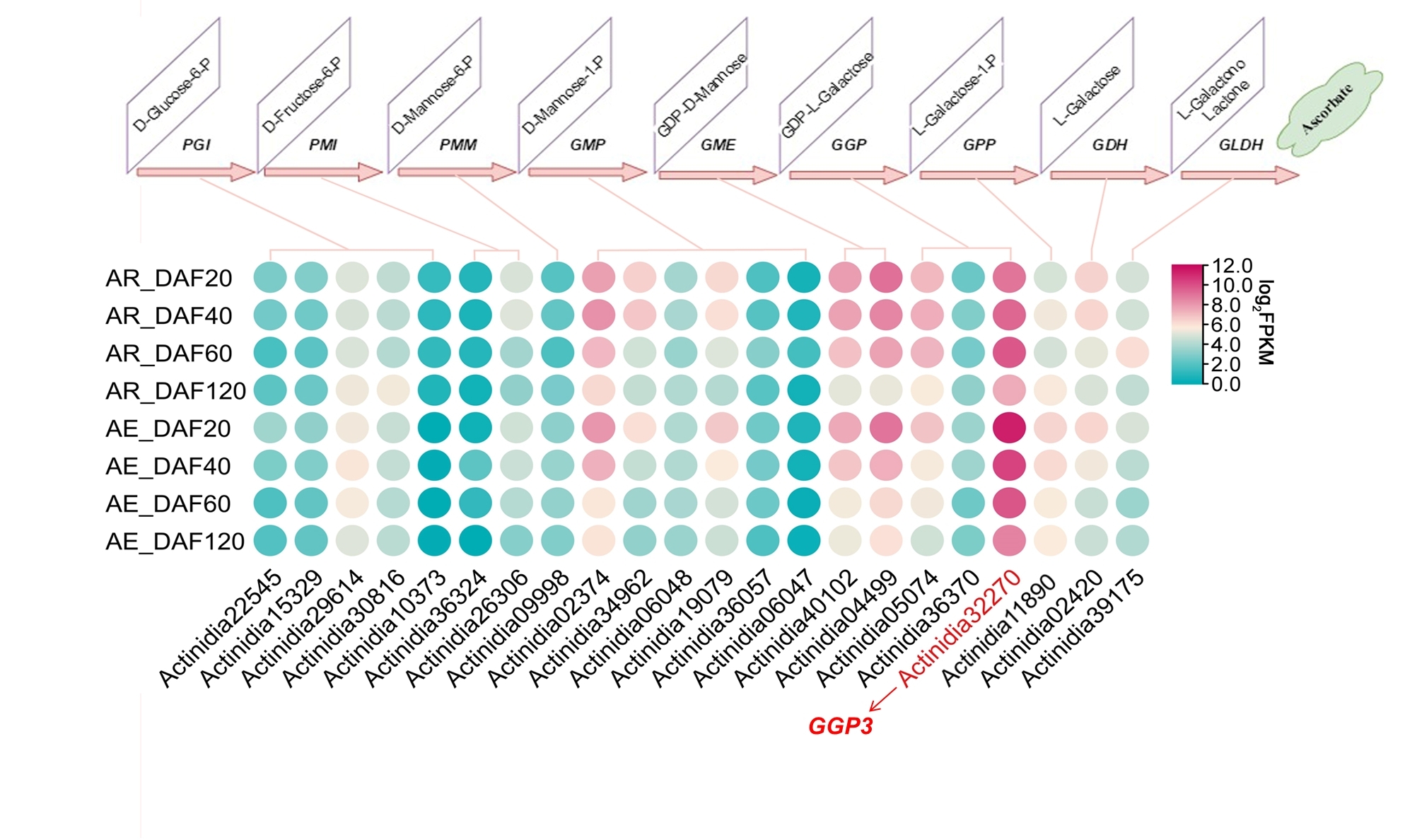AceGBF3-AceMYBS1-AceGGP3 Networks Regulates Vitamin C Biosynthesis in Kiwifruit
2022-06-09
Actinidia (kiwifruit) is rich in ascorbic acid (AsA; Vitamin C; Vc) and known as the ‘King of Vc’, which is very popular with consumers. Interestingly, the fruit AsA content of different kiwifruit species varies up to 300-400-fold. However, the molecular regulation mechanisms of AsA synthesis in kiwifruit are still poorly understood.
Supervised by Prof. ZHONG Caihong, and Associate Prof. LI Dawei, Ph.D. student LIU Xiaoying from Wuhan Botanical Garden first carried out systematic measurements of fruit AsA content in 48 kiwifruit species and found that the differences in AsA between kiwifruit species were mainly due to the extent of AsA accumulation in the early fruit development. In addition, RNA-Seq, transient transformation, transgenic and gene editing were performed on kiwifruit with a high AsA content (6-10-fold that of commercial kiwifruit) to uncover AceGGP3, which is a key gene for AsA synthesis in Actinidia eriantha (A. eriantha).
They identified a 1R-subtype myeloblastosis (MYB)-type transcription factor (TF), AceMYBS1, using transcriptome analysis and RT-qPCR. Overexpression editing of AceMYBS1 in A. eriantha found that AceMYBS1 promoted AsA accumulation. Subsequently, Yeast 1-hybrid, Dual-luciferase assay and Electrophoretic mobility shift assay revealed that AceMYBS1 bound directly to the AceGGP3 promoter and activated transcription of the AceGGP3 gene, then increasing AsA accumulation.
Further, they uncovered the downstream protein AceGBF3 (a G-box binding factor) that interacted with AceMYBS1 using Yeast 2-hybrid library screening assay. Additionally, Yeast-2 hybrid, Bimolecular luminescence complementation assay, Pull-down, Bimolecular fluorescence complementation assay and transgenic assay were carried out to demonstrate that AceMYBS1 interacted with AceGBF3 in vitro and in vivo. Moreover, the interaction between AceMYBS1 and AceGBF3 can activate the transcription of AceGGP3 and synergistically promote the AsA synthesis of A. eriantha.
Previous studies have suggested that hormones could affect AsA synthesis. The newly discovered AceGBF3-AceMYBS1-AceGGP3 molecular regulatory network by ZHONG’s team can also be inhibited by abscisic acid, which is a foundation that will provide new clues for future elucidation of hormonal regulation of Vitamin C synthesis.
This research was financially supported by the National Key R&D Program of China, and the Chinese Academy of Sciences Youth Innovation Promotion Association Project. Results have been published in New Phytologist entitled “Kiwifruit MYBS1-like and GBF3 transcription factors influence L-ascorbic acid biosynthesis by activating transcription of GDP-L-galactose phosphorylase 3”.

The circle bar charts showing the AsA content (log2) of 48 different Actinidia species (Image by WBG)

Circle heatmap showing the expression profifile (log2FPKM) of orthologous genes in the L-galactose pathway in the kiwifruit (Image by WBG)